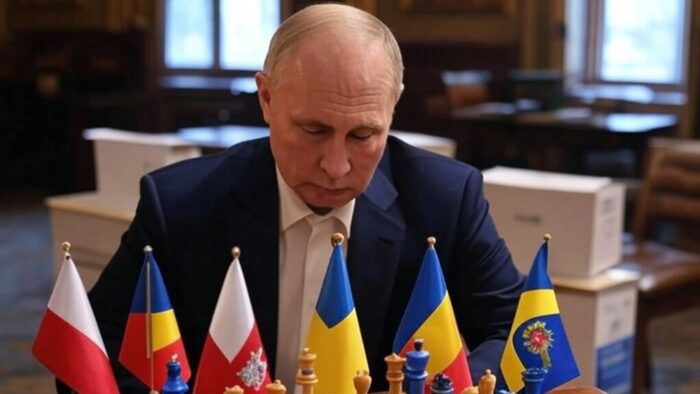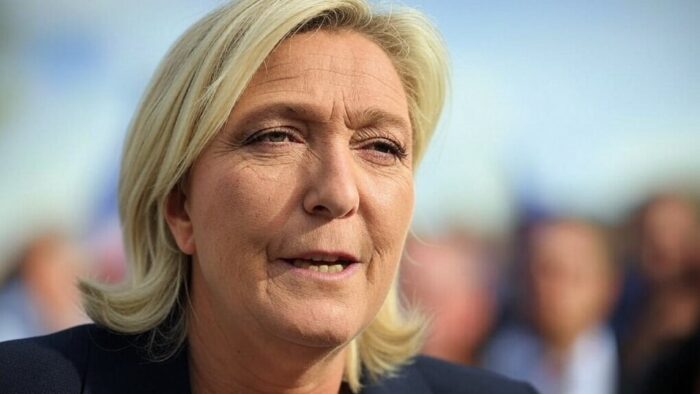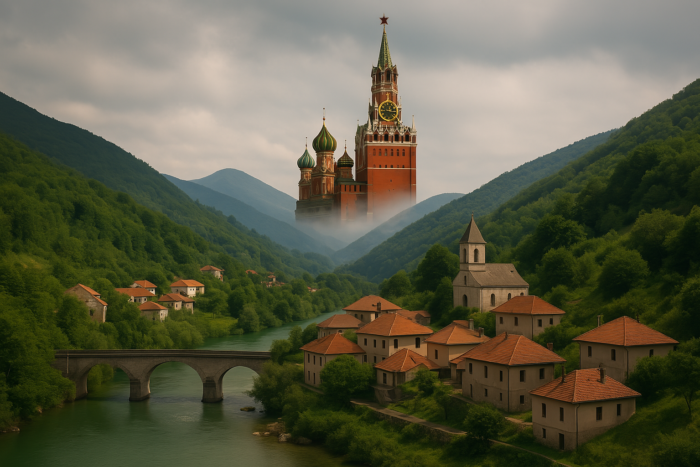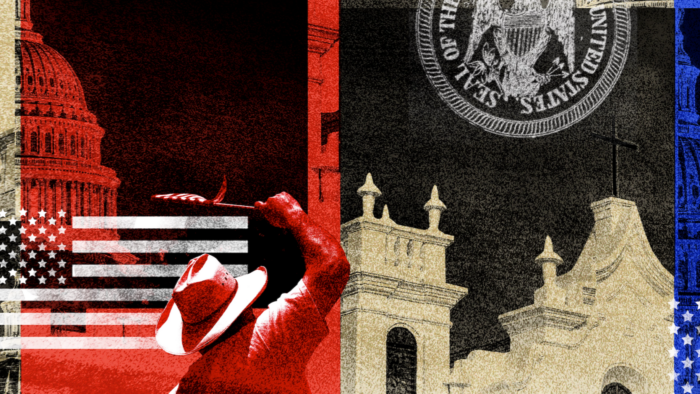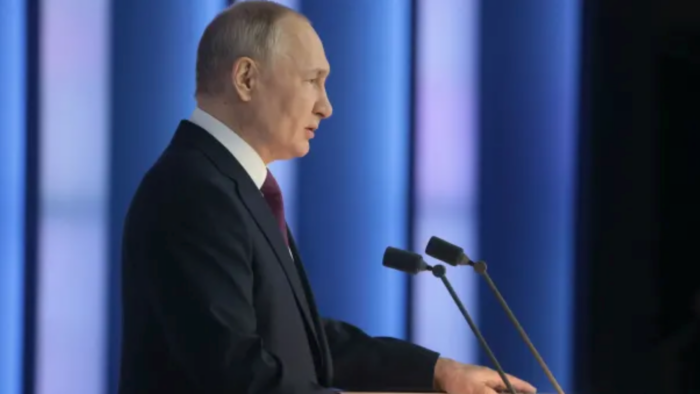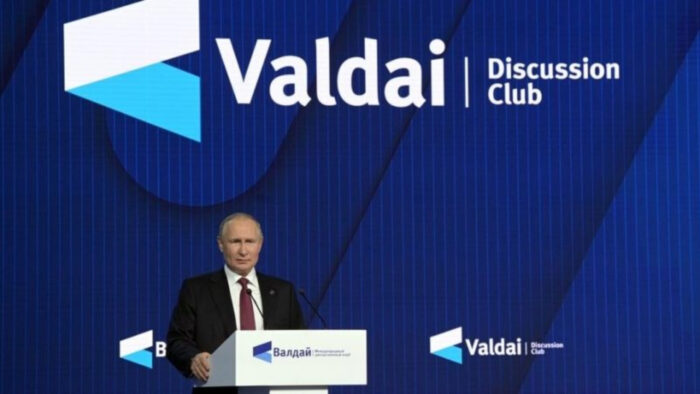The Ayn Rand Institute published an article in late September arguing that the recent National Conservative movement’s support of Ukraine is “a fraud.” The article, titled “Putin’s War Embodies National Conservatism’s Ideology,” argues that the collectivist ideals of National Conservatism are actually embedded in Russian President Vladamir Putin’s justification for the war:
September 28, 2022 “National Conservatism’s” cheering of Ukraine is a fraud, because this movement’s anti-individual ideas are embodied in Putin’s war. “Ukraine has made nationalism cool again” — “Nationalism’s finest hour” — “Ukraine shows we live in a nationalist world.” Articles with these provocative titles began to appear shortly after Russia’s invasion of Ukraine. All were authored by prominent advocates of “national conservatism.” They continued to press the theme in March at a National Conservatism conference in Brussels, where a series of speakers championed the cause of Ukraine. And since then, they’ve spoken out against Putin’s war. But in celebrating Ukraine and trying to connect their ideology with its fight, national conservatives protest too much. The ugly truth is that it’s Putin’s aggression — not Ukraine’s self-defense — that actually embodies their nationalist ideas. What makes the national conservative support for Ukraine’s resistance look semi-plausible is the ambiguity of the term “nationalism.” Colloquially, this term simply means loyalty to one’s nation and its interests as against those of others. Ukrainians are fighting against the odds to save their nation against an invading foreign power. So it’s unsurprising that some people might suppose that Ukraine’s fight is an instance of national conservatism’s “nationalist” ideology. But national conservatives mean something much more specific — and shockingly dangerous — by “nationalism.” In the work of this movement’s leading philosopher, Yoram Hazony, “nationalism” is a substantive moral-political ideology. Paramount is not the individual, but the nation, its needs, its unity, its “collective self-determination.” Hazony thinks states should be formed exclusively along national lines, where a nation is understood as “a number of tribes with a shared heritage, usually including a common language or religious tradition, and a past history of joining together against common enemies.” Motivating this is a view of human nature according to which our tribal and national identities are “an integral part of ourselves,” so much so that most of our responsibilities derive not from any individual choices but from this collective identity. But these are the exact ideas Putin has explicitly drawn upon to justify his war. Russia is being “imperialistic,” which somehow precludes also being nationalistic.
Read the rest here.
The Global National Conservative (GNCA) alliance is described in a GIOR report as follows:
Russian President PUTIN has expressed an interest in Russia becoming the ideological center of a new global conservative alliance, and European far-right leaders have taken pro-Russian positions based on a similar ideology. Hungary is at the center of a developing alliance between European far-right nationalists and American conservatives that Russia could potentially exploit for use in information warfare. This alliance operates under the rubric of “National Conservatism,” centered on national sovereignty, cultural identity, and opposition to global institutions and representing a potentially radical change for the US conservative movement away from long-held Reagan-era philosophies.
Read the full report here.
The GNCA has become the central focus of GIOR coverage of Russian influence operations.
